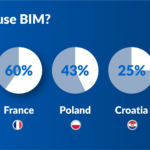Sector - Consultancy
Clock Ticking on EU Settlement Scheme Applications

The end of the grace period for EEA citizens to secure their longer-term residency rights by making an application under the EU Settlement Scheme is now only a few weeks away and, not surprisingly, many employers in the construction industry are wondering what they can do to ensure their EEA workers continue to have the legal right to work in the UK beyond that date. Shabana Muneer, Director at leading law firm Walker Morris, seeks to address some of the common concerns and provide some practical tips on the steps employers in the construction industry can take in the final few weeks of the “grace period” to protect against the risks associated with employing illegal workers.
Brexit is having a significant effect on employers in construction that want to recruit from the EEA. When free movement ended for EEA and Swiss (“EEA”) nationals at the end of the Brexit transition period on 31 December 2020, EEA citizens who had entered the UK by this date were given a six month “grace period” until 30 June 2021 to secure their longer-term residency rights by making an application under the EU Settlement Scheme (“EUSS”). The construction sector represents 10%[i] of total UK employment and is a key driver of jobs and economic growth, however, it has already faced considerable challenges following the new immigration requirements coming into play. Construction previously had one of the highest proportions of migrant workers within its labour force[ii], however the London construction market has seen the number of EU-born workers drop from 115,000 to 53,000 – a fall of 54%[iii] – since the autumn of 2018.
Should employers in the construction industry be asking current EEA workers to prove they have secured their status?
The Home Office’s Employer’s Guide to Right to Work Checks is very clear that there is no obligation to conduct retrospective right to work checks on existing EEA staff and no authority to oblige them to prove their status under the EUSS, whether before or after the 30 June deadline for applications.
Further, until 30 June, new recruits can volunteer to evidence their status under the EUSS but cannot be compelled to do so without risking allegations of discrimination. An EEA passport or national identity card remains acceptable evidence of right to work until then. From 1 July, any new EEA recruits will need to provide evidence of EUSS status or an alternative right to work e.g., sponsorship or a partner visa.
How do we know new recruits will be eligible to work for us beyond 30 June?
The Home Office guidance is clear that employers are not expected to distinguish between EEA nationals who first arrived in the UK before 31 December 2020 – and are therefore eligible to make an application under the EUSS – and those who arrived after this date, who may not be eligible.
Demanding evidence of this will be discriminatory, therefore employers are in a very difficult position when it comes to knowing whether EEA workers they take on before 30 June will continue to have the right to work. A sensible precaution would be to have a gentle conversation and sensitively encourage candidates to volunteer information regarding their status or eligibility to apply for it, e.g., in the context of offering to assist with any application that may be required.
What are the risks if existing EEA workers do not make an application in time, and how can we manage these?
The Home Office guidance makes it clear that employers who have undertaken legally compliant right to work checks of EEA passports or ID cards before employing EEA nationals will continue to retain the statutory excuse against the civil offence of employing illegal workers. Therefore, unless the business has actual knowledge, or reasonable grounds to believe, that an individual hasn’t made an application in time (in which case separate criminal sanctions may apply), there may be little practical risk of employing an EEA national who has not made an application in time.
However, in order to benefit from the statutory excuse, the right to work check must have been conducted in the prescribed manner and must have been conducted before employment of the EEA national commenced[iv]. In reality, many organisations fall short when it comes to right to work checks, and the challenges posed by the pandemic are likely to have exacerbated these issues. They may therefore risk civil penalties of fines up to £20,000 per illegal worker if the Home Office discovers they are employing EEA workers who have not made an application under the EUSS from 1 July.
It is highly likely that right to work documents for EEA nationals will be more rigorously checked during Home Office compliance visits after the 30 June application deadline has passed, and therefore this is something employers need to be actively turning their attention to, as well as resourcing challenges the business will face if EEA workers may have to be let go. In addition, being found to be employing EEA nationals who haven’t made an application in time where proper right to work checks cannot be evidenced may also have ramifications on the ability of the employer to sponsor non-UK workers under their sponsor licence, which is a business imperative for many organisations in the construction industry.
How can employers in the construction industry encourage EEA workers to make their applications in time?
The key tool at employers’ disposal in these final weeks before the deadline expires is communication and making sure that EEA workers who haven’t yet made their application are aware that the clock is now ticking. In the run up to the 30 June deadline, employers should therefore think about:
- Auditing their workforce to assess the proportion of EEA workers and whether this is likely to be a significant issue for them;
- Sending gentle reminders along with links to the latest government information for EEA nationals on making applications in time;
- Raising awareness of the fact that individuals who don’t apply in time will (in all but very limited circumstances) lose their legal right to remain in the UK, access healthcare, rent property etc. Careful thought will need to be given to the tone of such communications;
- Given that the timeframe for making applications is now relatively tight, it would also be worth considering offering any individuals who disclose that they have not yet made an application assistance with the process if they require it; and
- In the longer term, assisting those who obtain time limited pre-settled status to track when their application for settled status will become due.
The Home Office has confirmed that applications will be considered after the 30 June deadline only where there are “reasonable grounds” for the application not having been made in time, e.g., where a person lacked the digital skills to make the application, or where a parent has failed to make the application on behalf of a child. There is still much uncertainty around when late applications will be entertained, and therefore this should not be viewed as a safe fall-back position.
The Home Office guidance is due to be updated in advance of 1 July to provide further details regarding the specific right to work processes that will need to be followed for EEA recruits from this date. We will publish further updates when more information becomes available.
It is in the interests of employers in the construction industry to ensure EUSS applications are submitted by their staff in time. The Walker Morris Business Immigration team is here to assist with any queries on the employment of EEA nationals and questions about the recruitment of EEA citizens from 1 July 2021. If you require assistance on any of these issues, please contact Shabana Muneer
If you would like to read more stories like this, then please click here
[i] https://www.london.gov.uk/about-us/londonassembly/meetings/documents/s70098/04%20a1%20FSB%20-%20Manifesto.pdf
[ii] http://speri.dept.shef.ac.uk/2020/02/19/restrictions-to-immigration-and-work-in-the-uk-construction-industry/
[iii] https://www.constructionnews.co.uk/skills/londons-eu-born-construction-workforce-halves-24-11-2020/
[iv] https://www.walkermorris.co.uk/publications/covid-19-adjustments-to-right-to-work-checks-to-end-from-21-june-2021/
Related Articles
More Consultancy Features
- Outlook for the property and construction sector heading into 2025
17 Dec 24
Across the residential, rental and infrastructure sectors, there will be many challenges in 2025, as well as many opportunities.
- No compare – why framework comparison is a risky business
23 Jan 23
At a time when the framework market is more competitive than ever, it can be tempting for public sector organisations to choose the lowest cost.
- Physics engineering to go mainstream in 2022
8 Feb 22
Building physics engineers will become mainstream during 2022.






